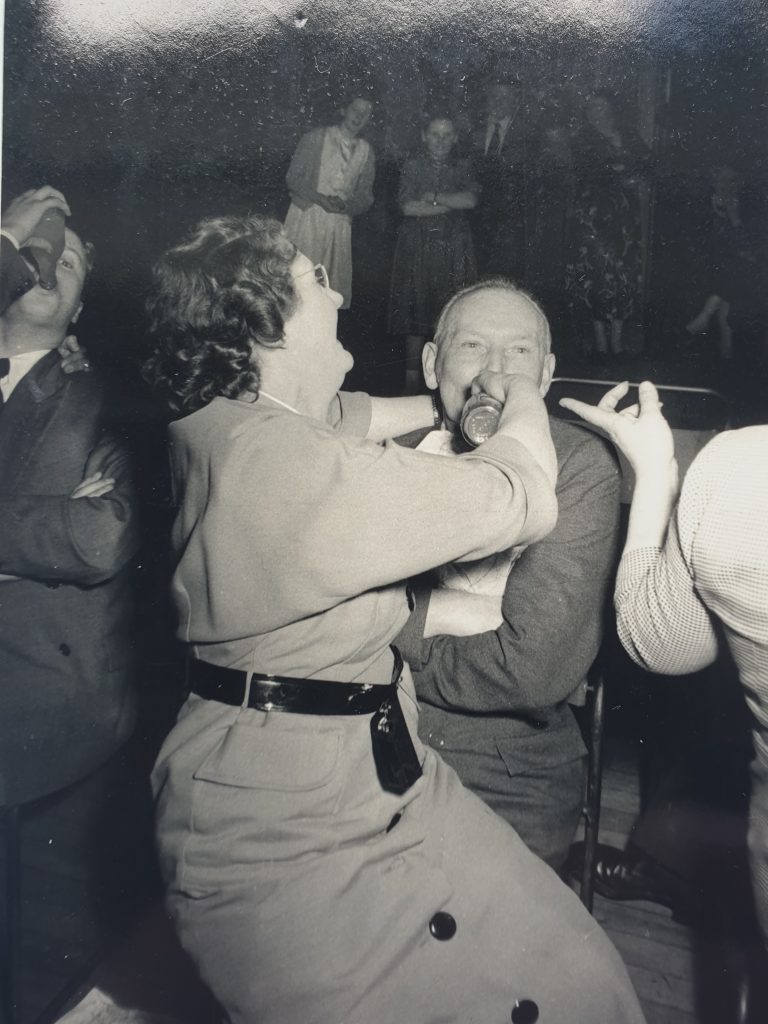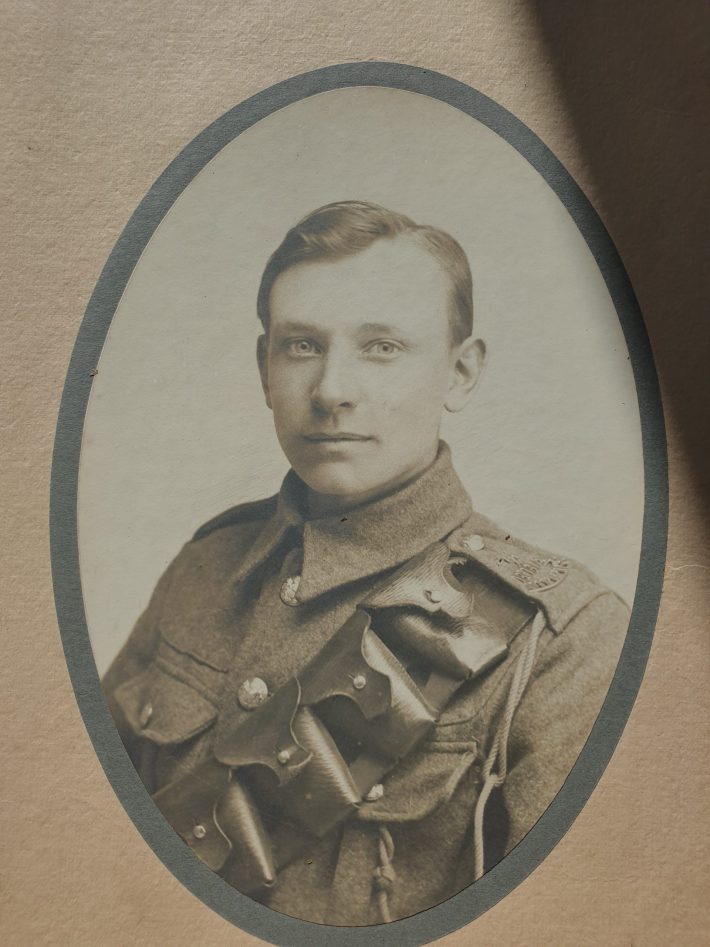This is the story of Ernest Dawson. His life started in tragedy, then through the great war and to settling in the Mapperley area of Nottingham.
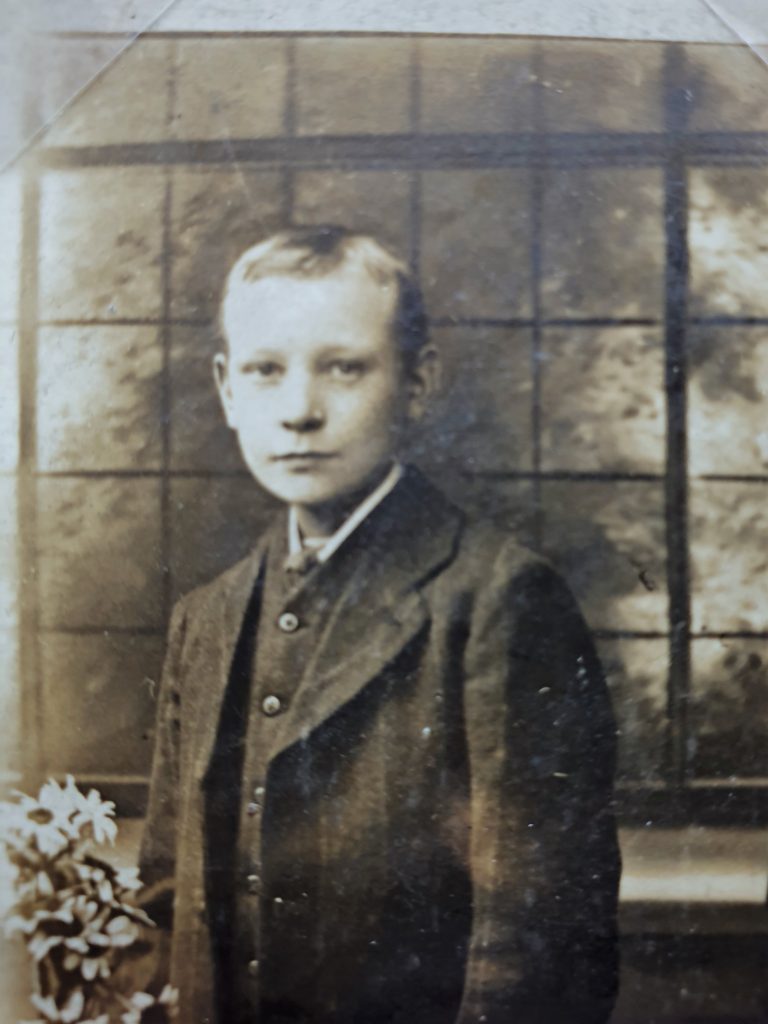
This is Ernest. He was born on 15th October 1895.
His mother died on 8th May 1898 when he only two years old. His father Peter Dawson wasn’t able to care for him, so he was sent to a relative in Manchester. Peter Dawson’s parents were John Dawson (a silk mill manager) and Sarah Morrell, who came from a family of market gardeners in Cheshire. The Morrells had links to the Trafford family.
Ernest and his siblings were sent to Pendleton in Salford, to their Auntie Sarah and Uncle George. They did not have a happy childhood, despite the fact that Uncle George was an interesting character. He used to be in the Music Halls as a contortionist. He was tattooed all over and as bald as a coot. He used to do a contortionist act dressed as Mephistopheles.
Ernest was so unhappy in his childhood, that he got away from Manchester at the first opportunity. His father (in the mean-time) had found work in Nottingham on the big railway project that was under way. He was living in the Meadows area of Nottingham, where Ernest joined him. This would have been just before the outbreak of WWI.
Here are what exists of his army service, taken from photographs, documents and diaries.
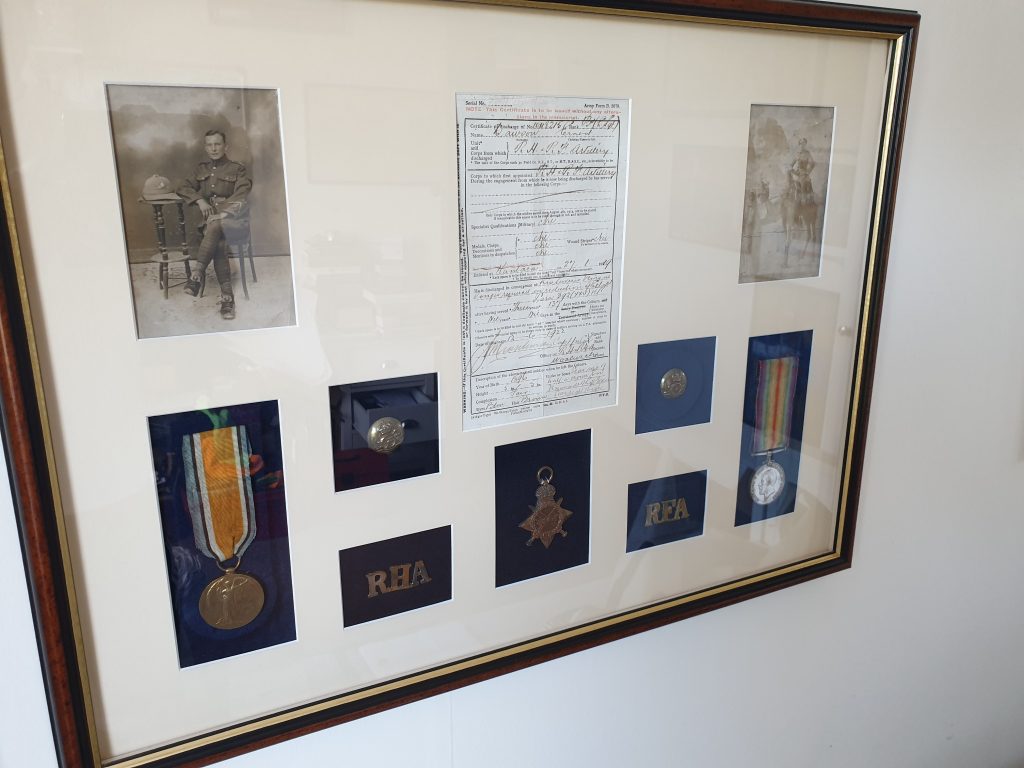
The war gave Ernest the opportunity to get away from the circumstances he found himself.
He enlisted in the army, something which he had no regrets in doing. He joined the Royal Horse Artillery and Royal Field Artillery in 1915. He was 19 years old.
Ernest’s army service is preserved in various photographs, documents and diaries.
Here is his Soldiers Diary of 1918. These contained all kinds of vital information for the soldier. Things such as the kind of information required when making reports, and the types of weapons in use by the ‘fighting powers’. For instance, the Lee Enfield .303 (used by the British) had a longer range than the others. It also helped the soldier understand the words and terms he would hear people say. Terms like ‘Chucking a Dummy’ meaning fainting on parade, or ‘on the tack’, to describe someone who was teetotal.
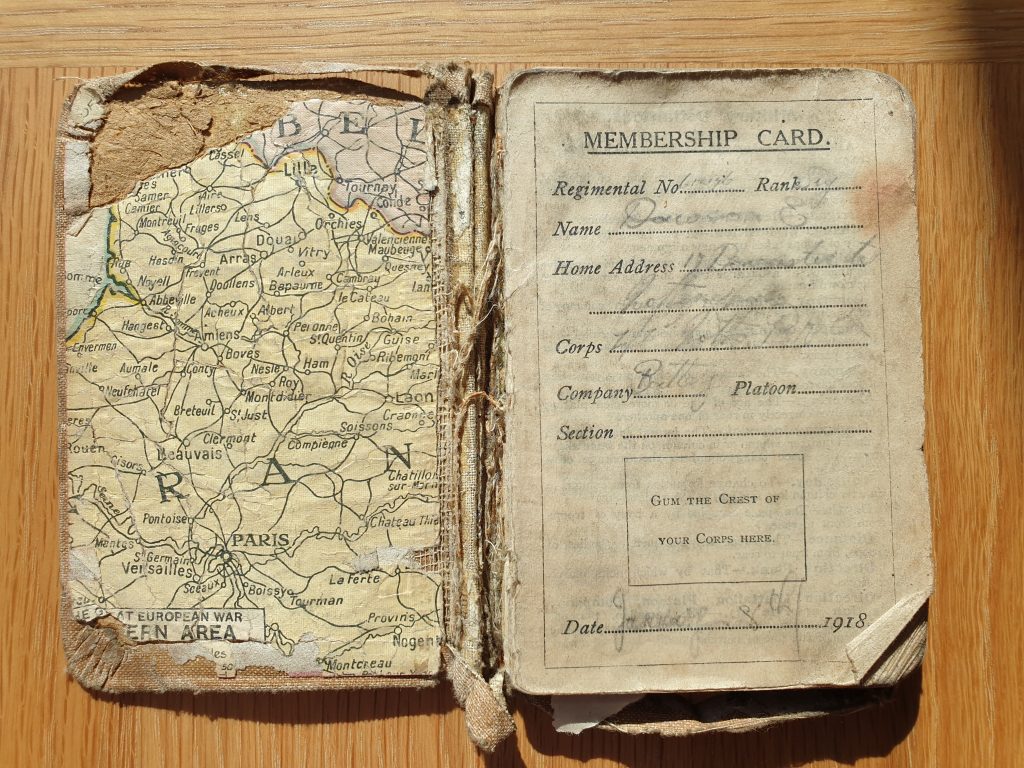
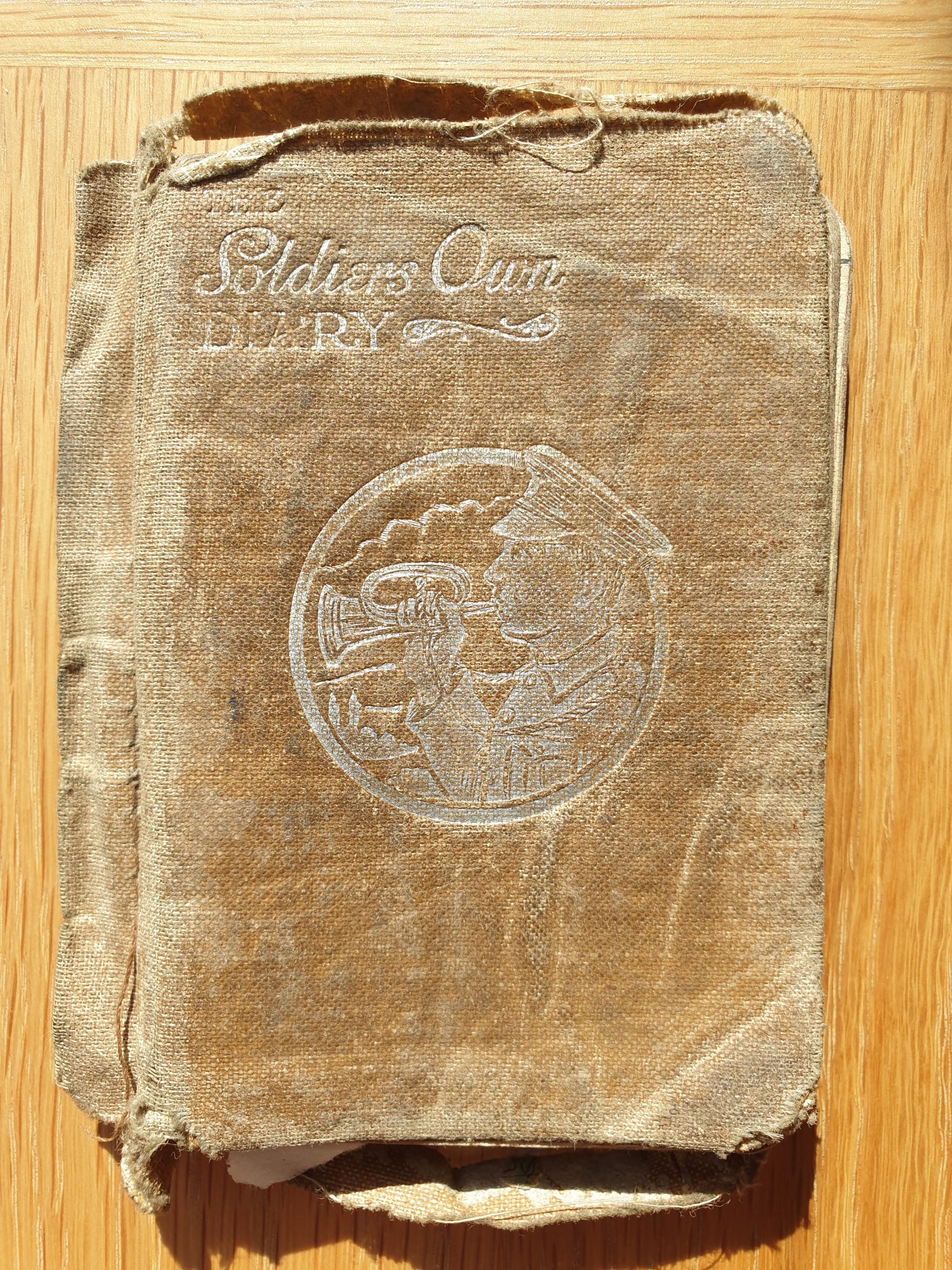
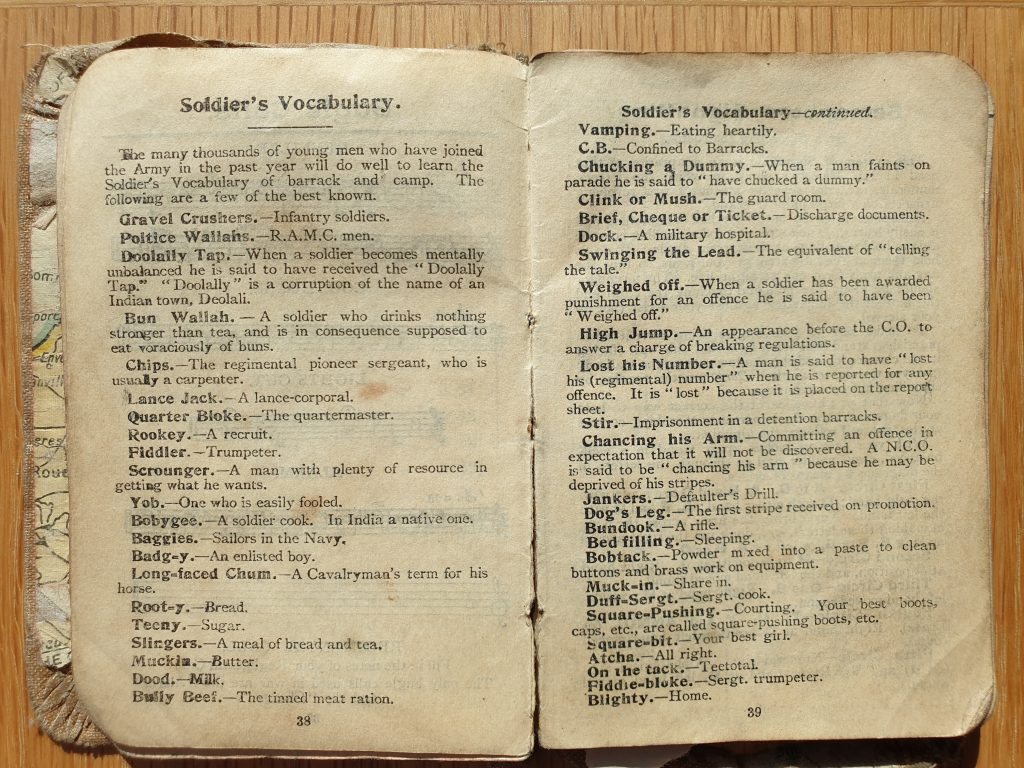
After his initial training, Ernest landed in Egypt in 1915, where he spent a period in a place called Sollum
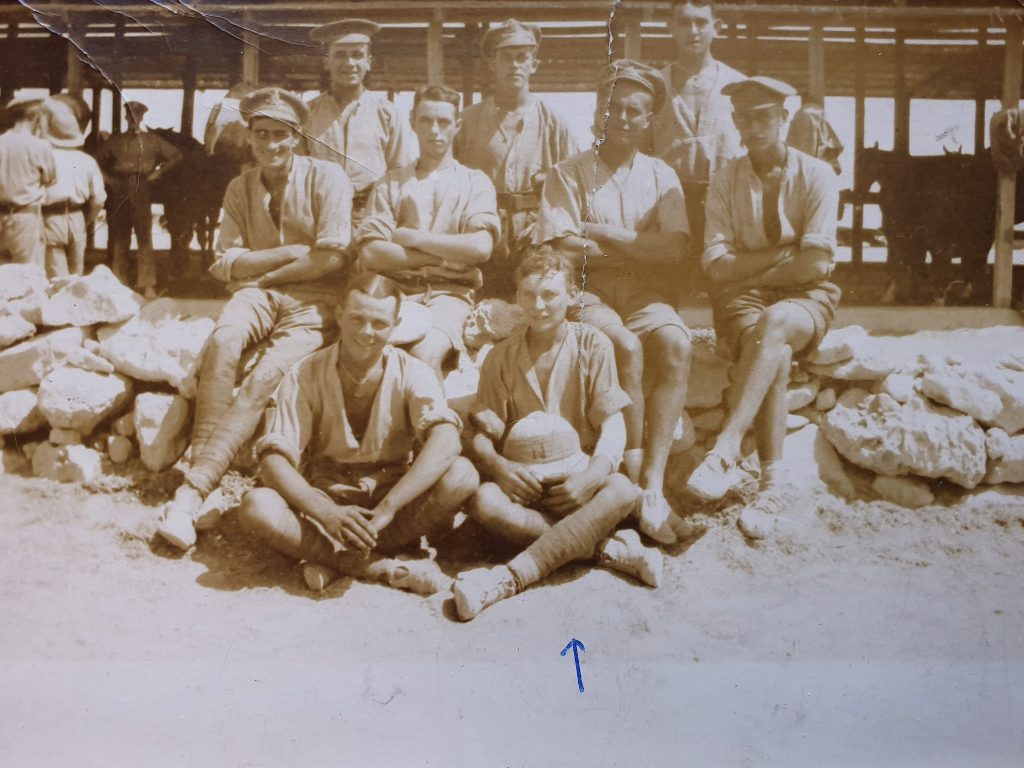
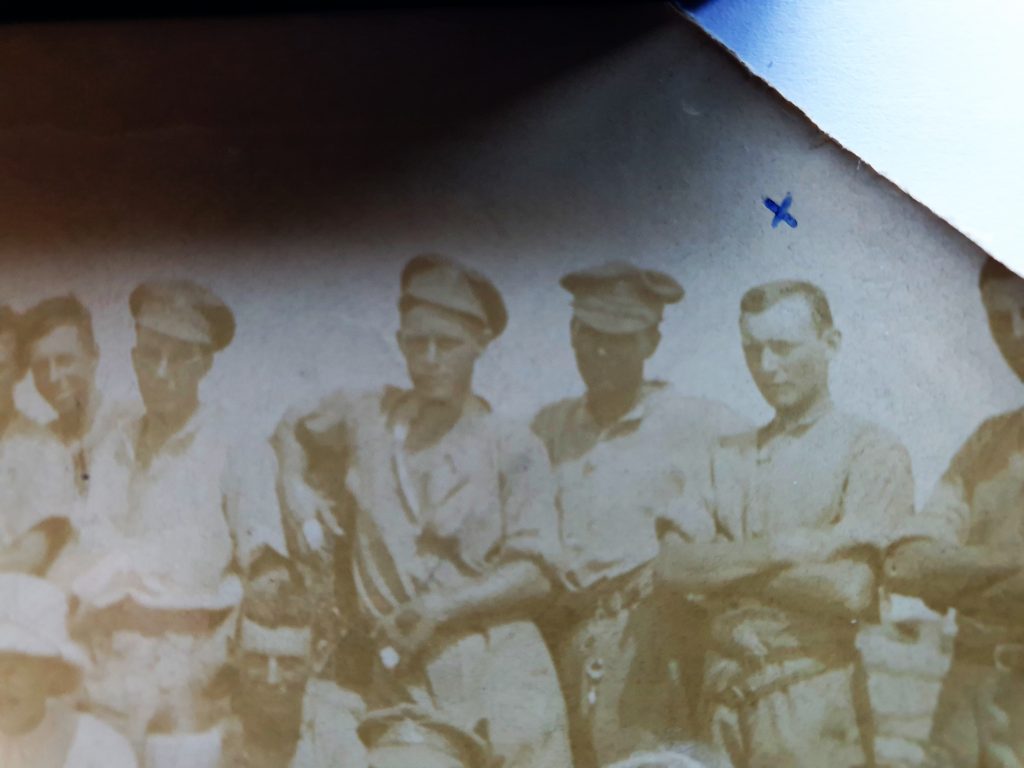
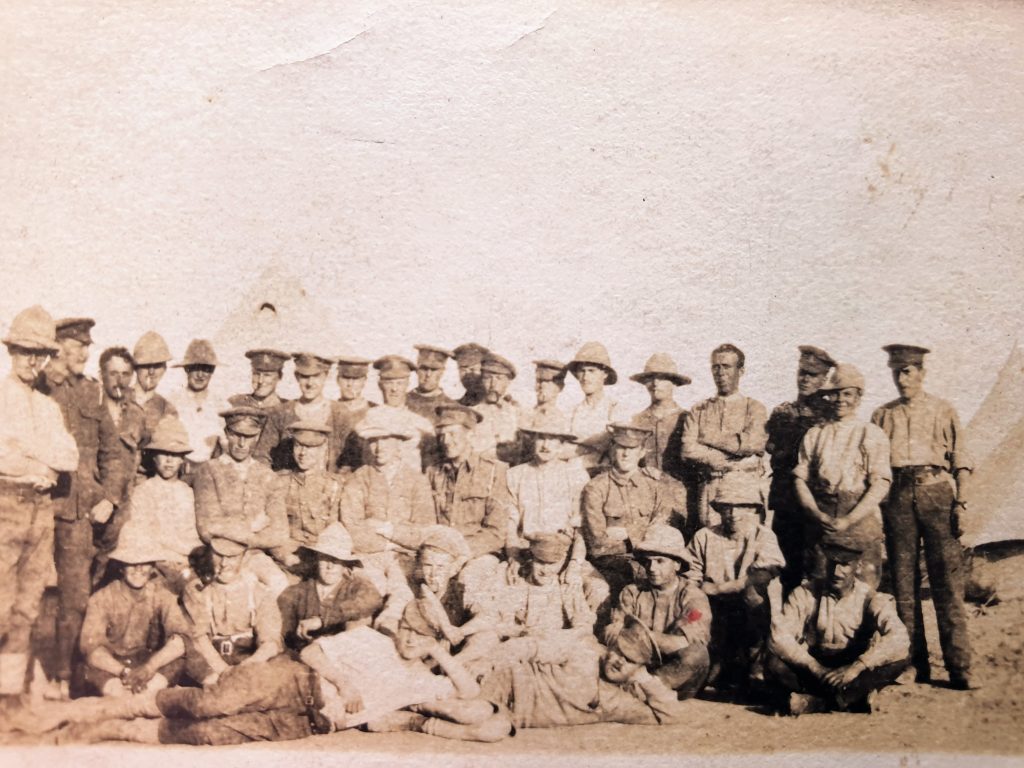
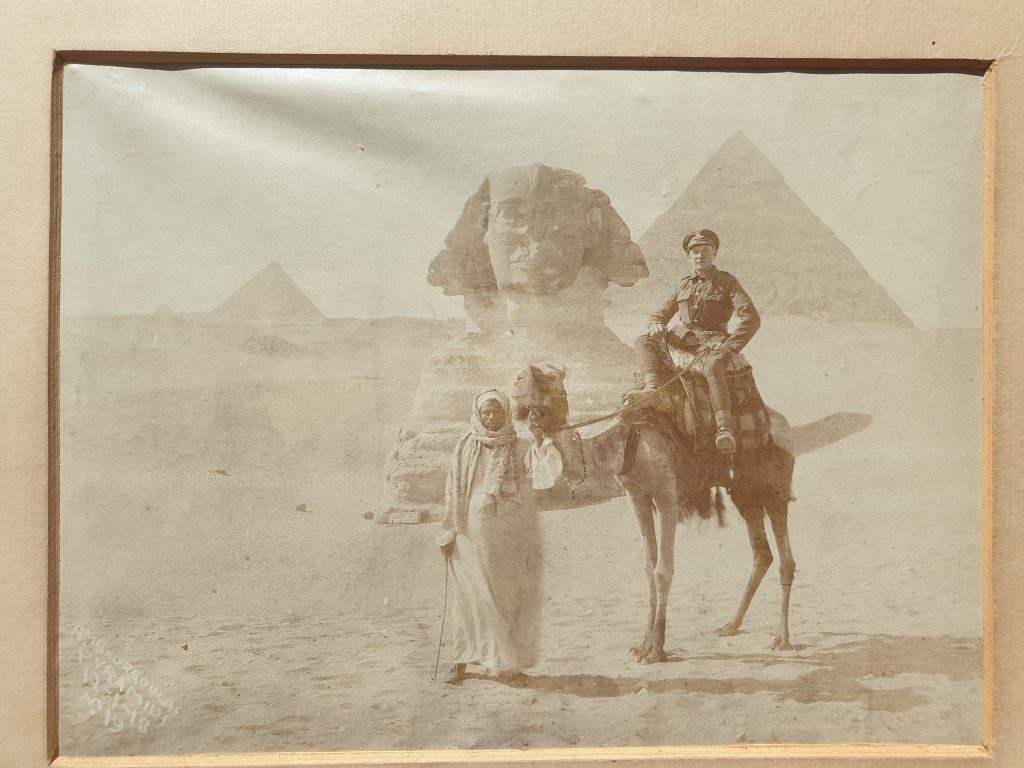
Ernest is now 22 years of age, and has been in Egypt for just over two years. A number of copies exist. This appears to be a professional photograph, similar to those taken for wealthy tourists.
In addition to riding a camel, Ernest had also learnt to ride horses. He was clearly enjoying his military adventure and was proud of his achievements. The photograph below has the following written on it: Ernest on lead horse of the best team in Egypt!
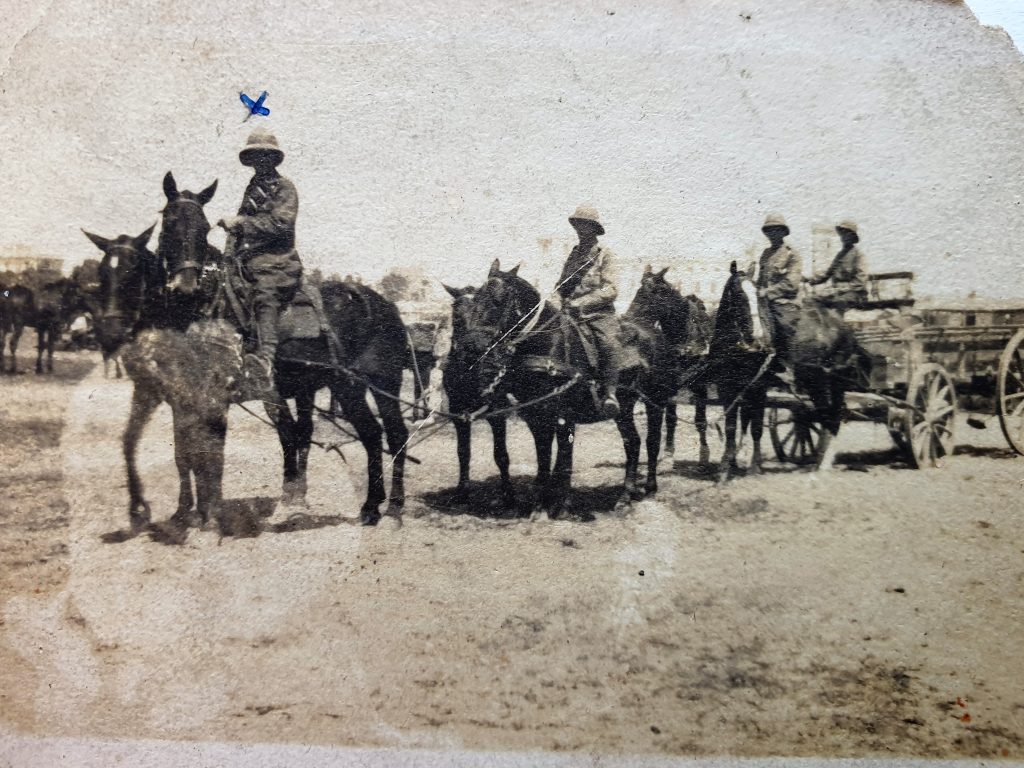
It is not clear what military engagements he was involved with in Egypt from 1915 to 1918.
The Royal Field Artillery (Territorial Force) was a field artillery brigade formed from three Territorial Force Royal Horse Artillery batteries in January 1916. It was assigned to the 52nd (Lowland) Division to replace I Lowland Brigade, RFA (T.F.) and joined the division in Egypt.
The Realities Of War
The brigade was reformed as horse artillery in July 1917, seeing active service in in the Sinai and Palestine Campaign in 1917 and 1918. It remained in Palestine on occupation duties after the end of the war and was finally disbanded in November 1919.
However his diary of 1918 indicates they had moved into Palestine.
Here are some of his photographs that remind us of the reality of Ernest’s war.
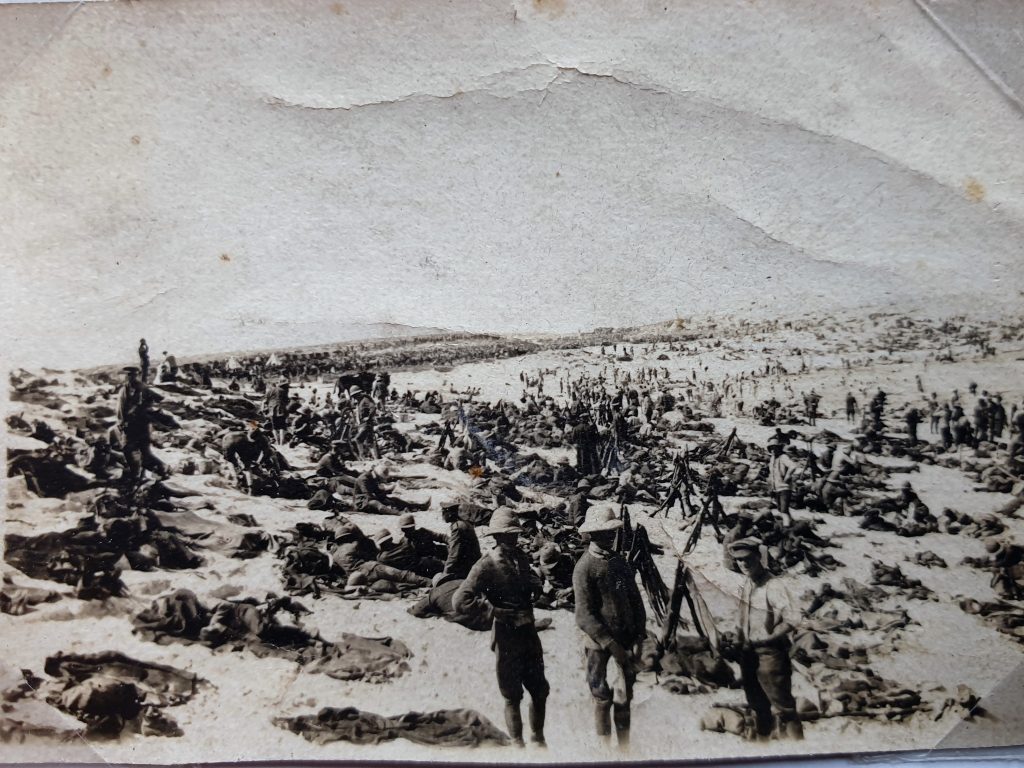
“Two hours after this photo we were shelled by the enemy.”
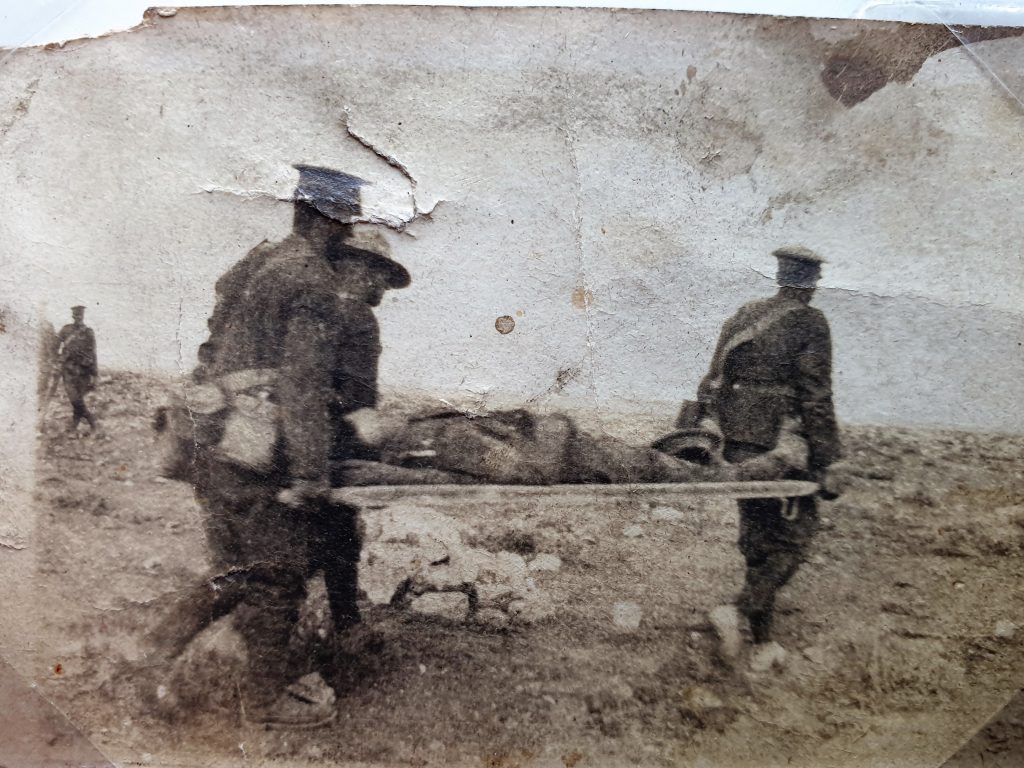
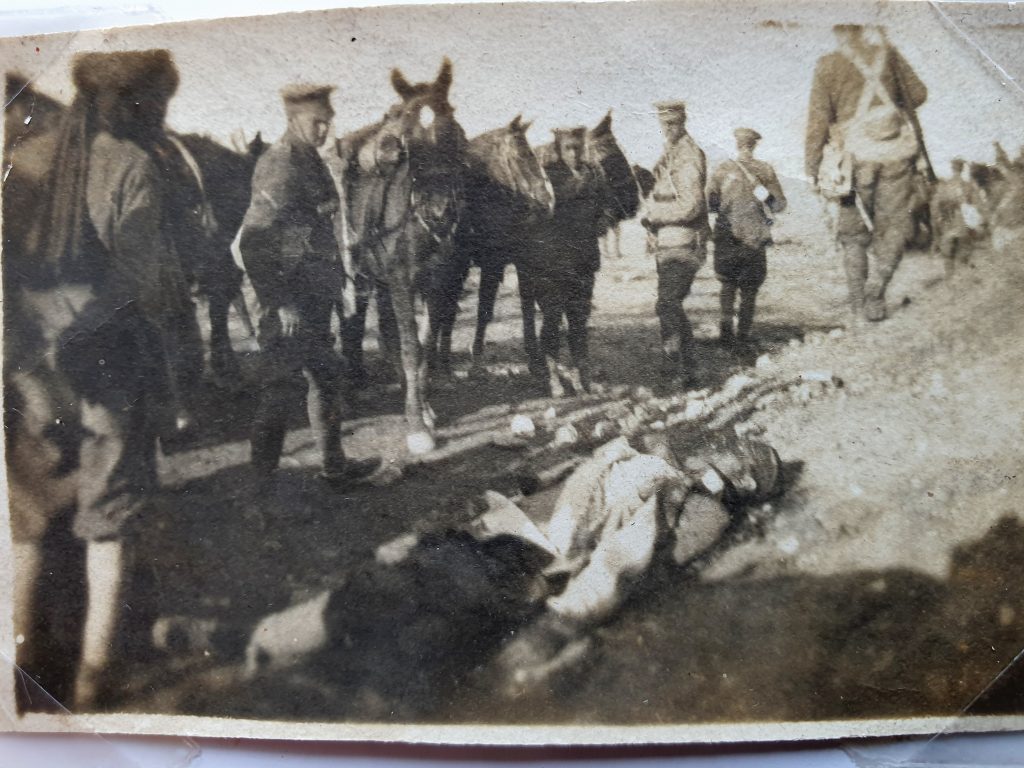
The Likelihood Of Injury Or Death Was High.
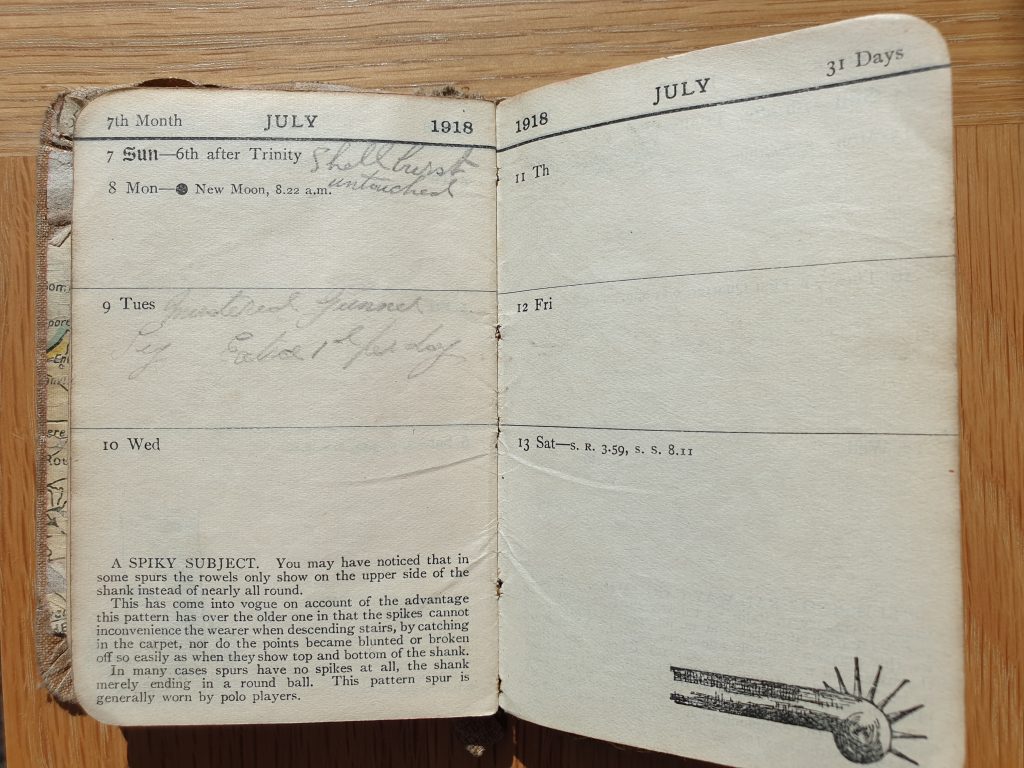
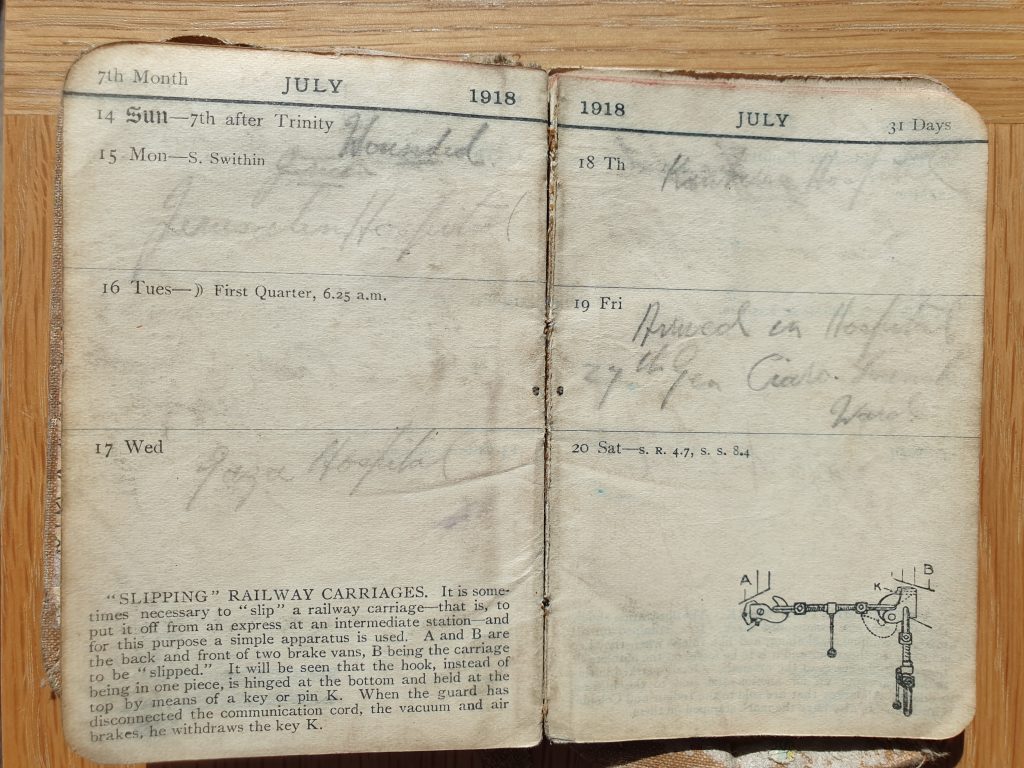
17th July 1918. Gaza Hospital
Injured By Shellfire
Ernest’s injuries, from shellfire, were to his left arm and thigh. It would appear that, after recovering from his wounds, he remained in Palestine and Egypt. Despite his discharge certificate being issued at Woolwich on 26th Jan 1919, he re-enlisted at Kantara in Egypt, the following day. The Character Certificate issued Gunner Ernest Dawson stated that he had served 2 years and 255 Days, and described him as:
“Very good. Honest, sober and hard working”.
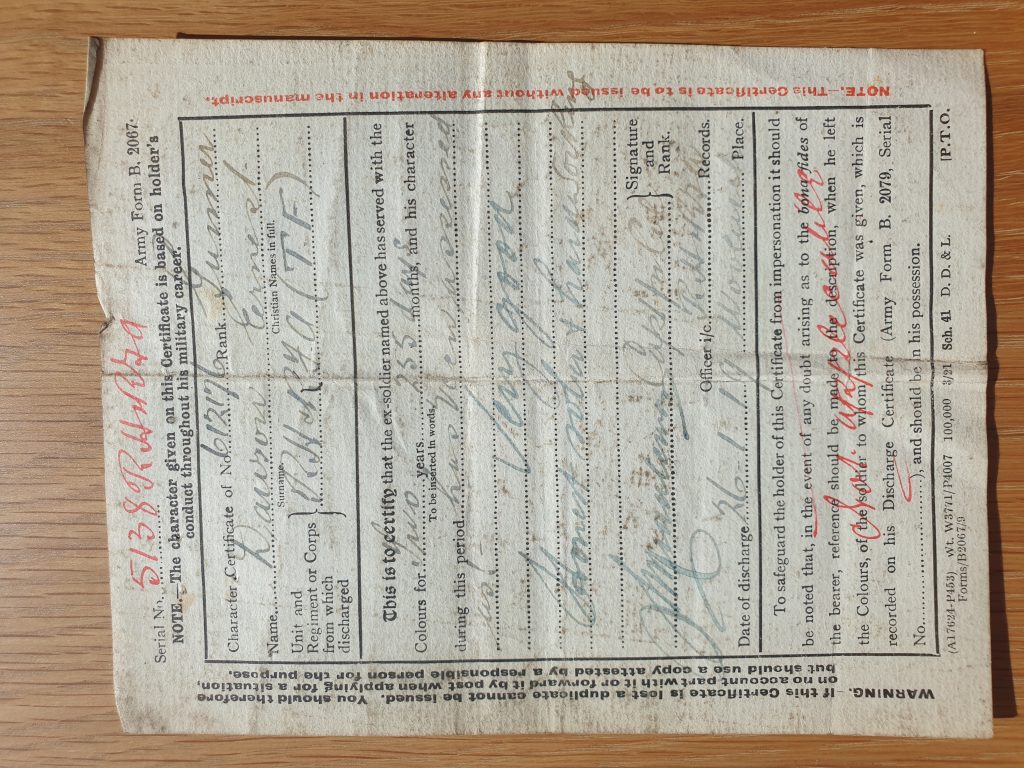
Ernest had enjoyed the army, and with the uncertainty of what life would be like back in England, he chose re-enlist, whilst at Kantara, Egypt on 27th January 1919.
Kantara was the site of Headquarters of the Eastern Force during the defence of the Suez Canal Campaign and the Sinai Campaign of 1916. It was a massive distribution warehouse and hospital centre that supported and supplied all British, Australian and New Zealand operations in the Sinai from 1916 until final demobilization in 1919.
Ernest was then allowed home on leave and returned to Nottingham.
His father encouraged him to marry a young woman named Eva Miles. Eva had moved to Nottingham for work and was friends with a family that his father knew well. Eva had been helping to care for injured soldiers in Nottingham. He agreed to marry her.
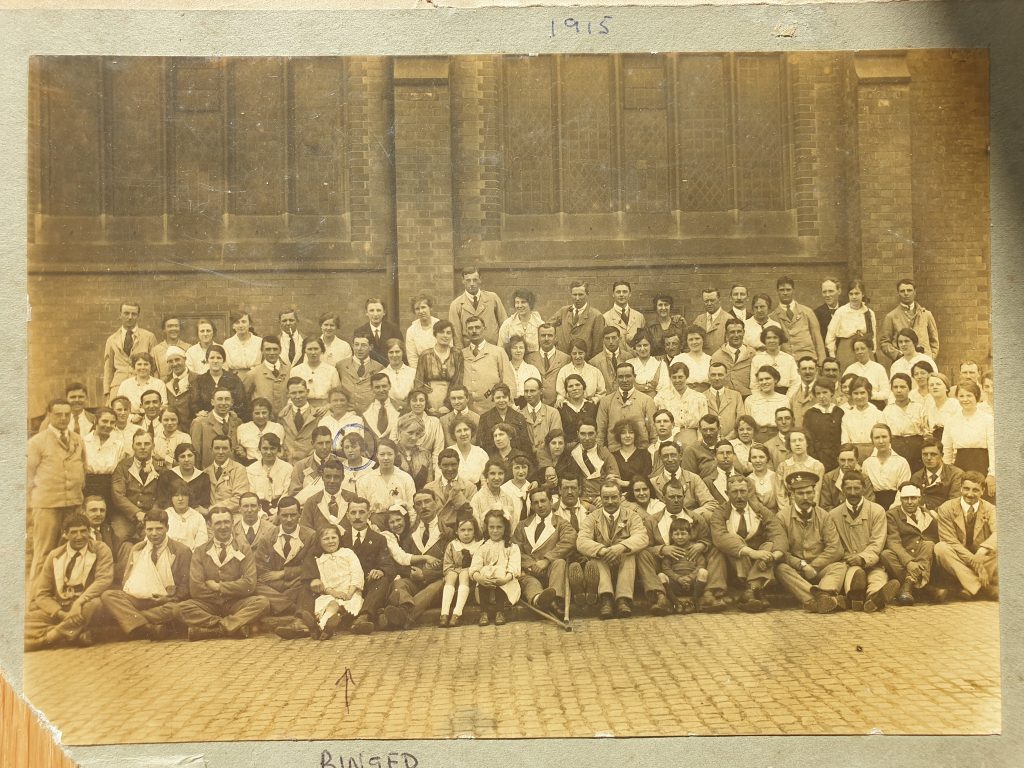
They were married on 15th November 1919 at the Mayfield Grove Chapel in The Meadows Nottingham.
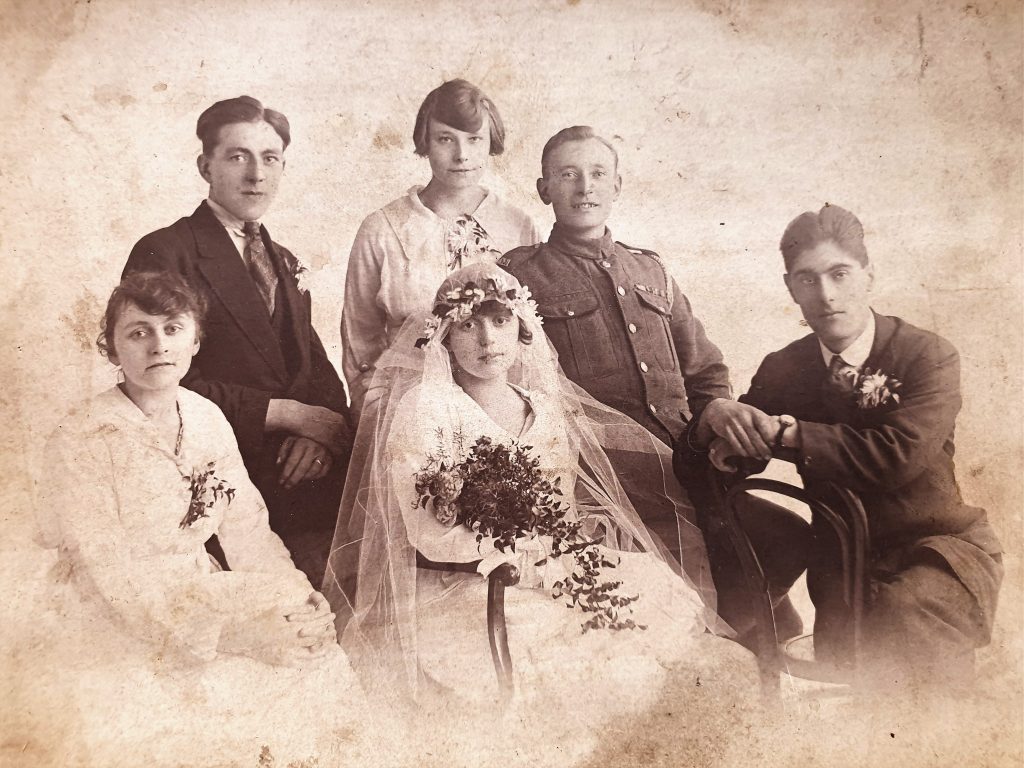
After the wedding, Ernest was posted to India at a place called Cannanore.
He was required to serve in the Mesopotamia Campaign and was promoted to Bombardier Sgt with the 505 Battery of the Royal Field Artillery.
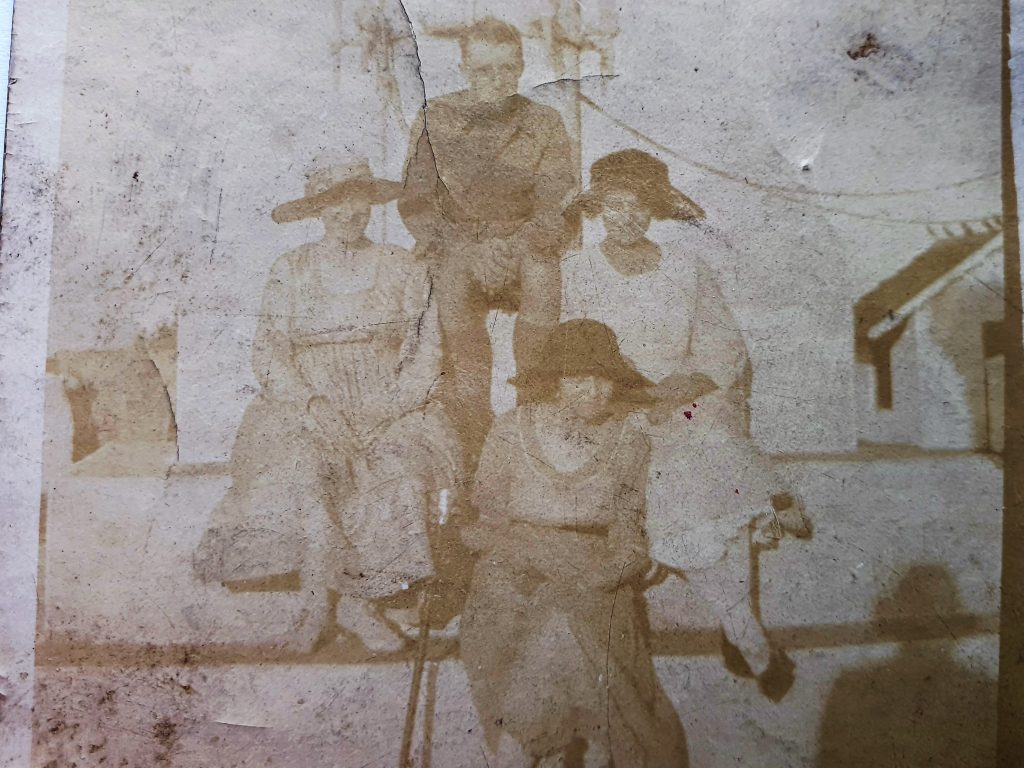
The British had built a large military cantonment to the east of the city of Poona where the Southern Command of the Indian Army was established in 1895..
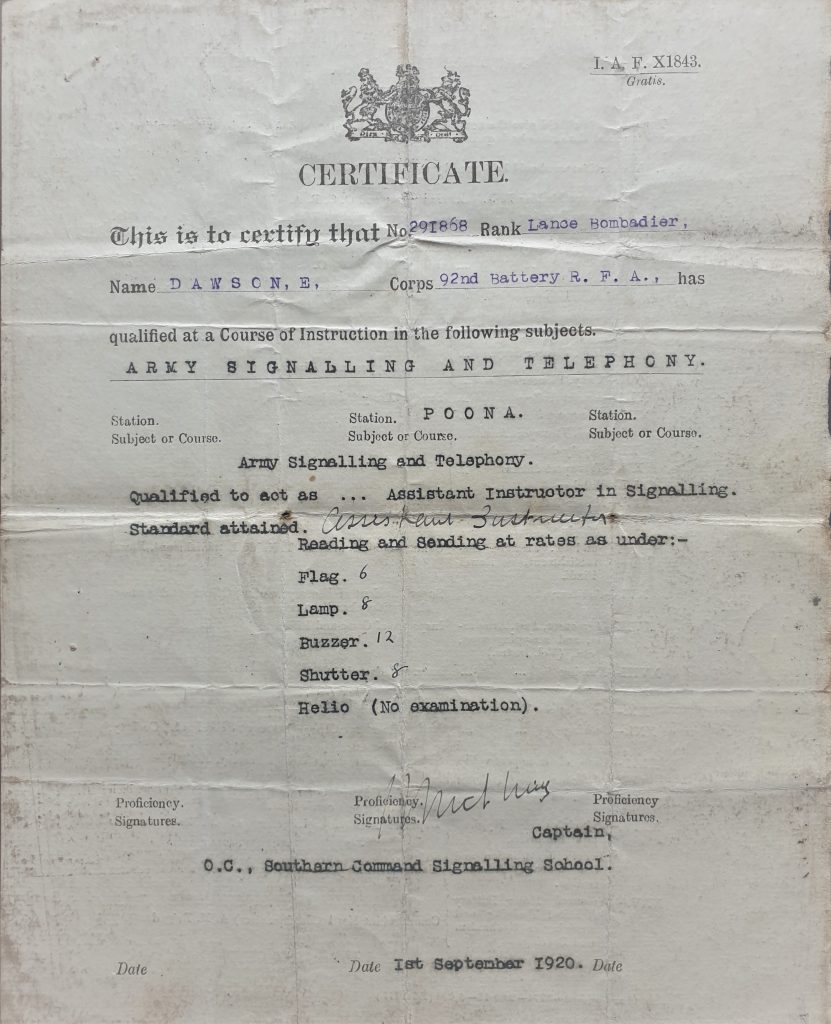
Ernest did not keep a diary at this point, or if he did, it is lost. There are photographs, though of his time in ‘Mespot’.
His new wife Eva did keep a diary for a few weeks in 1921. It explains her circumstances in India, as an army wife.
- 1st Jan 1921 – Letter from Ernest from Deolali
Deolali Transit Camp was a transit camp for British troops in India. It was notorious for its unpleasant environment, and the psychological problems of soldiers that passed through it. It is the origin of the phrase ‘gone doolally’ or doolally tap’, meaning to lose one’s mind.
- 3rd Jan – Ernest embarked at Bombay for Mespot.
- 4th Jan – Fancy Dress Dance. Enjoyable evening. Some fun over the dress beforehand.
- 12th Jan – Details arrived in Basra in Mespot.
- 19th Jan – Walk on beach with Mrs Littlewood Mrs Bennet and Scottie.
- 20th Jan – Went on the beach with the Cannanite Rangers. Swim in morning.
- 21st Jan – Whist Drive and Dance at night. Swim in Morning.
- 23rd Jan – Frightened with rat under the mosquito net. Fed up with Cannanore.
Cannanore is a city now known as Kannur in the southern Indian state of Kerala. It is over 1000km south of Bombay (Mumbai). During British rule in India, it was a part of the Malabar District (Madras Presidency).
The military base in Cannanore was at St Angelos Fort. On 15 February 1663, the Dutch captured the fort from the Portuguese. They modernised the fort and built the bastions Hollandia, Zeelandia and Frieslandia that are the major features of the present structure. The original Portuguese fort was pulled down later. A painting of this fort and the fishing ferry behind it can be seen in the Rijksmuseum Amsterdam. The Dutch sold the fort to King Ali Raja of Arakkal in 1772. In 1790 the British seized it and used it as their chief military station in Malabar until 1947.
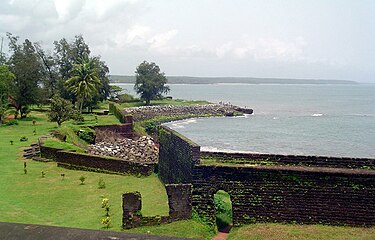
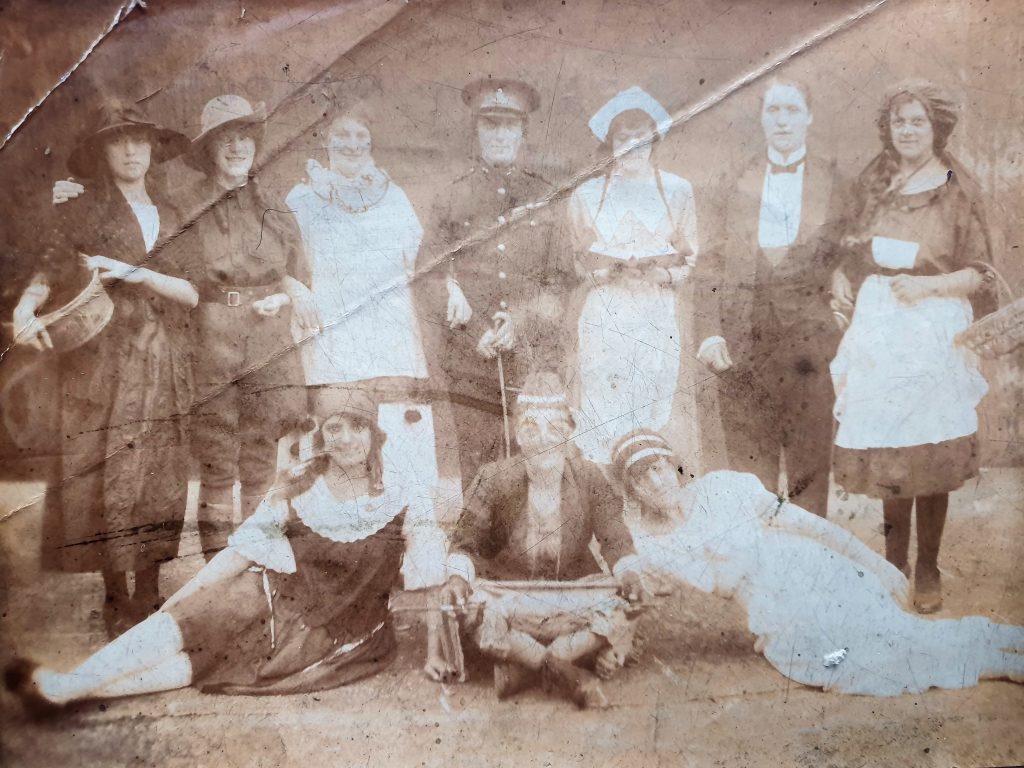
Eva’s diary continues to give us a brief insight into her life as an army wife in India. They have been in India for a year and she is clearly looking forward to returning home to ‘Blighty.’
- 28th Jan – (a year since Ernest left home) Scottie left the camp. Whist Drive and Dance. Some of women going home but not me.
- 27th Jan – Visited Mrs Cheetham in Hospital. 3 new born babies in 17th Brigade.
- 29th Jan – No news of home. All excited waiting for news. Walk in Bazar
- 31st Jan – Went to Dursee for new dress and skirt. In recreation room at night.
- 1st Feb – Whist drive and dance. Presentation to Mrs Christie on leaving the camp.
- 2nd Feb – Ethels 21st Birthday. Sorry I have not been able to be with her.
- 4th Feb – No pay today and no news from Poona. Whist Drive and Dance.
- 6th Feb – Walk in big Bazar. Saw terrible sights among natives. Smallpox etc.
- 7th Feb – First letter from Ernest in Mespot also name in for Blighty. 3 women in Battery for home.
- 9th Feb – Signed Documents for home. More names in for 17th Bde. Bobyjee sorry I am going home.
- 14th Feb – In Recreation room singing and telling fortunes. Flannel issued for home.
- 15th Feb – Farewell whist drive and dance. Presentation to Mrs Willis and Mrs Madden.
- 17th Feb – Sports for Kiddies. Confined to camp trouble with the natives.
- 18th Feb – Steel Cabin Trunks issued. Letter from Mespot. Whist Drive and dance. News of Ernest’s promotion.
- 20th Feb – Played whist in Rec. Finished packing for home. No mail.
- 21st Feb – Months pay for Blighty. Leaving Camp 10pm tonight. Farewell dinner.
- 22nd Feb – In train bound for Bombay.
- 25th Feb – Reached Bombay 8 o’clock am. Embarked Zeppelin for home
- 26th Feb – Ship cannot sail. Wire round propeller.
- 28th Feb – Saw Duke of Connaught leave Bombay on Malaya – Sailed for home.
The Duke of Connaught, was the seventh child of Queen Victoria and Prince Albert. He was educated by private tutors before entering the Royal Military Academy, where he was commissioned as a lieutenant in the British Army. He served for some 40 years, seeing service in various parts of the British Empire. In 1921, he travelled to India, where he officially opened the new Central Legislative Assembly, Council of State, and Chamber of Princes. Though he retired from public life in 1928, he continued to make his presence known in the army well into the Second World War, before his death in 1942. He was Queen Victoria’s last surviving son.
The Return Home
Eva returned to Nottingham, but has to wait some time for her husband to join her. He was still required on active service in Mesopotamia. Despite the war being over, the region needed managing, and administration putting in place. This area would go on to becoming the Iran.
With British Indian forces already on the ground, the British imported civil servants from India who had previous knowledge and experience on how the government of a colony is supposed to run. The expulsion of Ottomans from the region shook the centuries-old power balance. Arabs who believed that the expulsion of the Ottomans would lead to greater independence and fought against the Ottoman forces along the Allies faced another dilemma. They were disappointed with the arguments regarding the establishment of British Mandate of Mesopotamia.
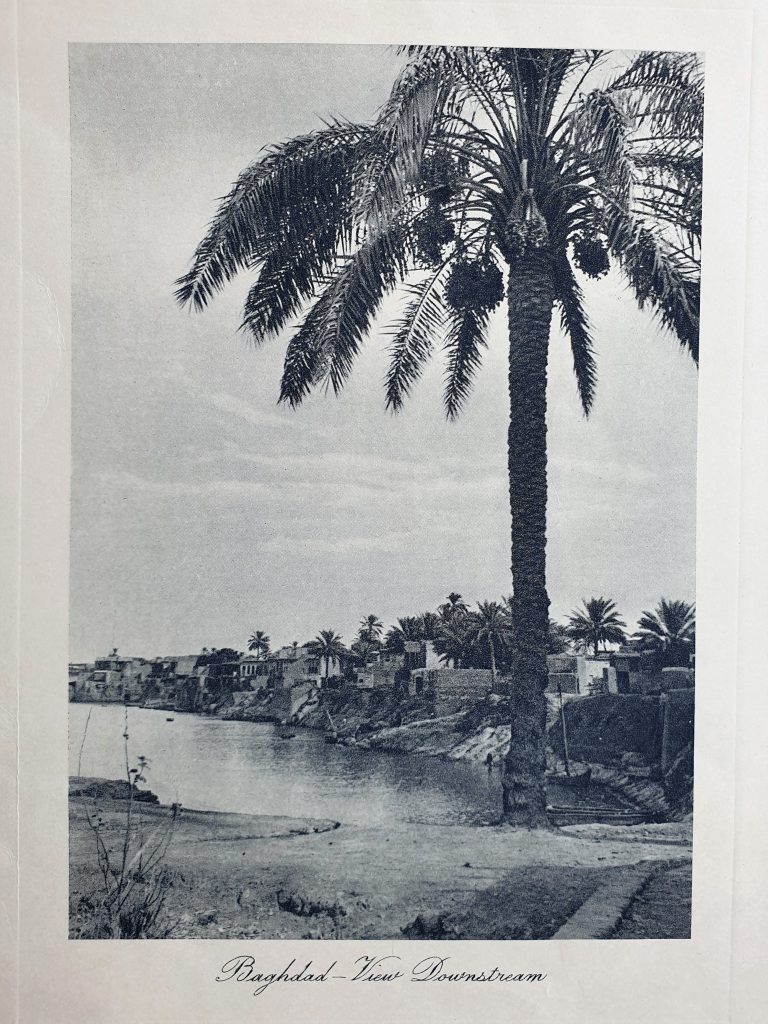
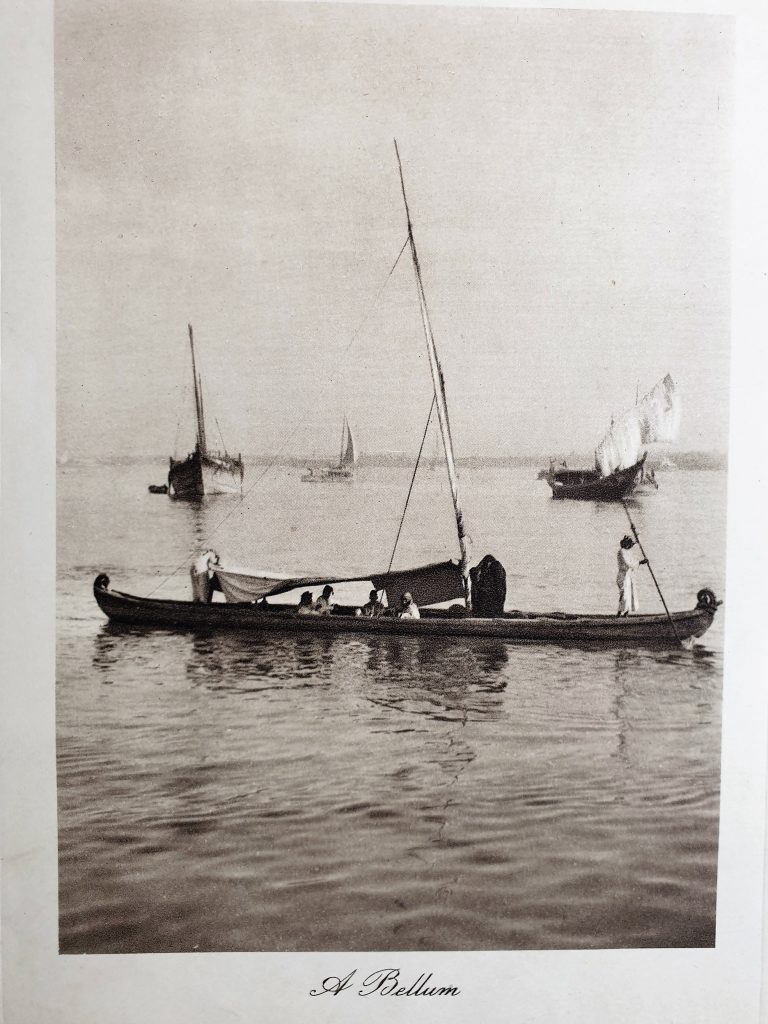
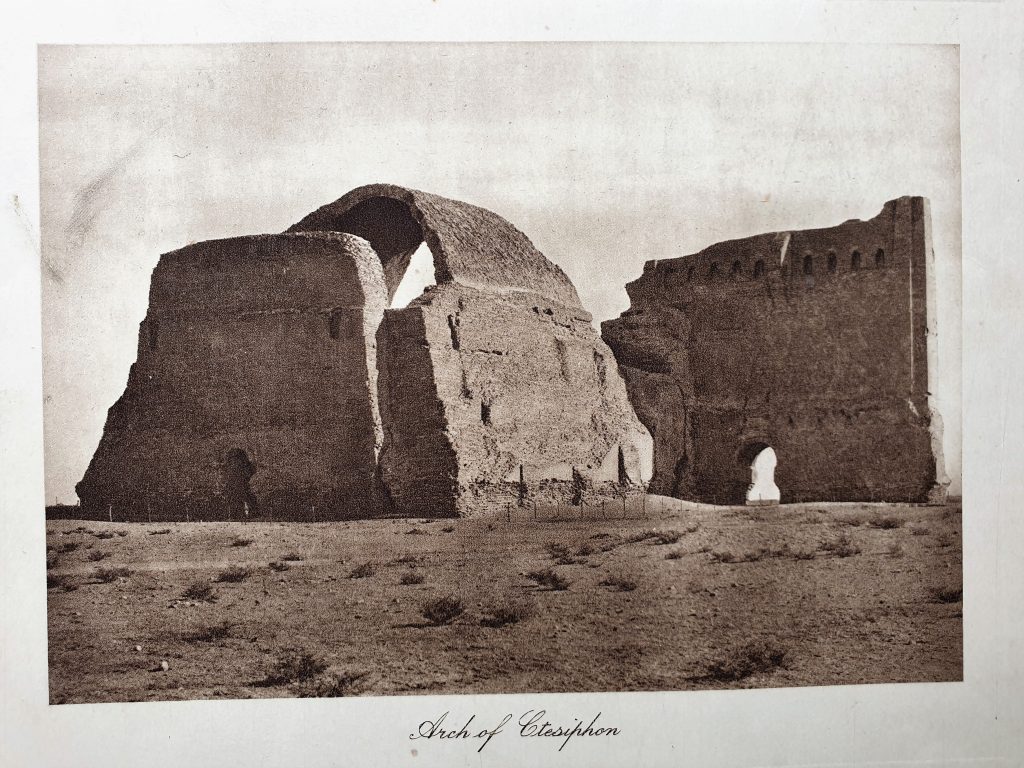
On June 13th 1922, Bombardier Sergeant Ernest Dawson of the 505 Battery Royal Field Artillery was discharged. His military career was completed. His Character Certificate, issued at Fort Wallington in Fareham Hampshire, described him as: Is sober. Has been instructor of signalling in the unit. Knows the work well, is very keen and has worked hard.
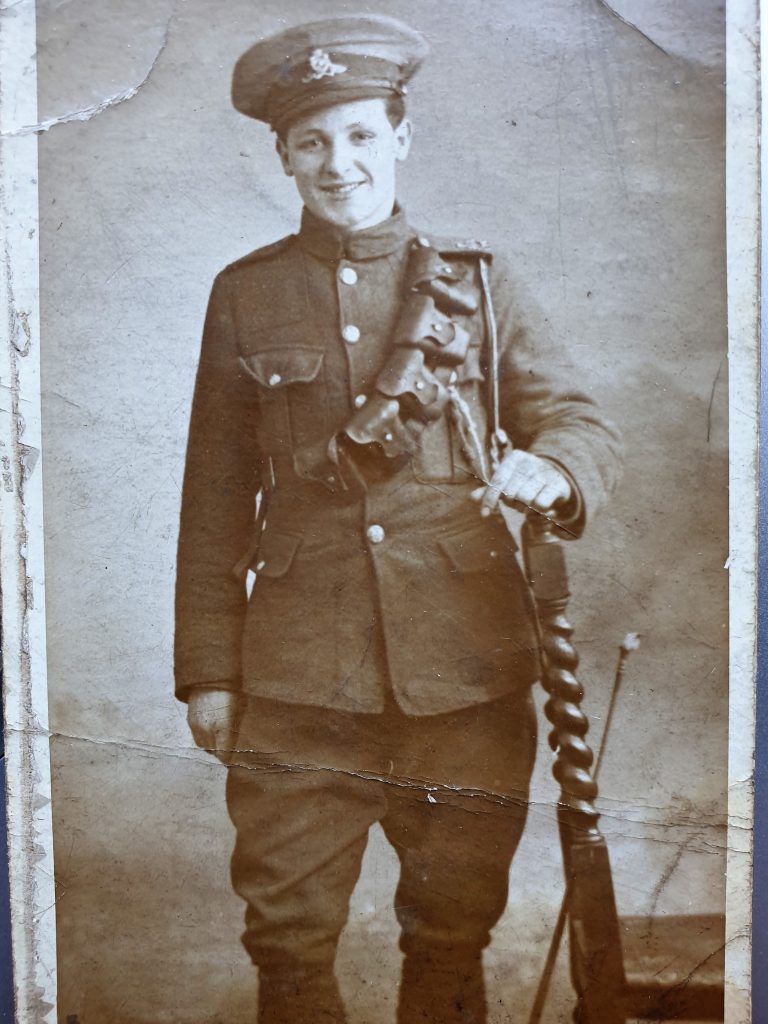
Along with the memories and scars from his time in the army, he also returned with photographs of other soldiers. It is presumed that they were close friends who served with him.
It is not known what happened to them, or whether they stayed in touch.
George Bromhead (left)
After his final discharge from the army, Ernest and Eva settled in Nottingham in St Anns where he found work as a manager at a number of public baths in the city.
They raised a family, two sons and a daughter. All went on to have families of their own.
Eva died on 31st Oct 1957 at Nottingham’s General Hospital, she was 60 years old. On his retirement, Ernest moved to a small cottage at 27 Woodthorpe Drive. He died on 21st June 1986 at Nottingham City Hospital. He was 90 years old.
We will end with this photograph.
